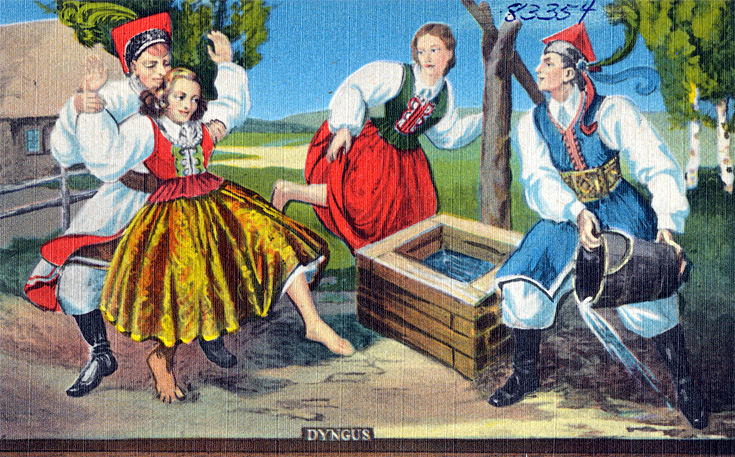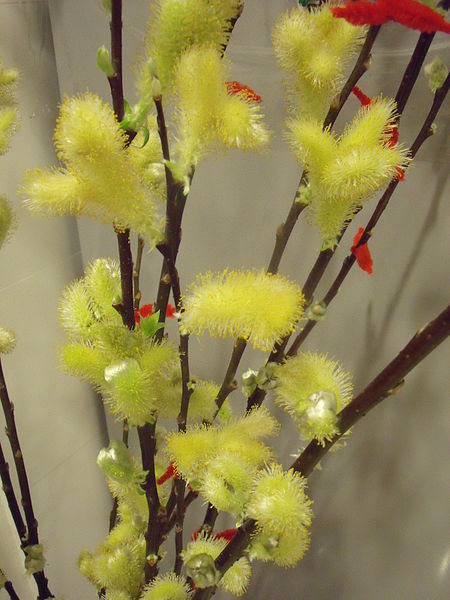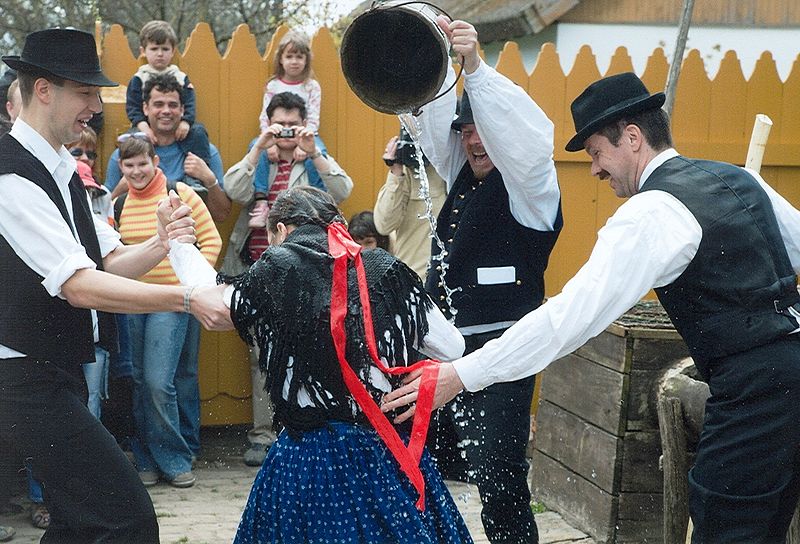
Author: Nationwide Specialty Co., Arlington, Texas — In Buffalo, N.Y., Stanley Novelty Co., 200 S. Ogden St., via Wikipedia Commons
Today’s blog post is taking us to Central and Eastern Europe, in particular to Poland and one of its Easter customs called Śmigus-Dyngus. Variants of this custom are also observed in Ukraine, the Czech Republic, Slovakia and Hungary. Śmigus-Dyngus is celebrated on Easter Monday and is also known as lany poniedziałek (‘Wet Monday’, or as Поливаний понеділок in Ukrainian). In the neighbouring countries, similar customs are Oblévačka (Czech) and Oblievačka (Slovak – both meaning ‘Watering’) and Vízbevető (‘Water Plunge Monday’ in Hungarian).
Traditionally, on Easter Monday boys are allowed to throw water over girls and spank them with pussy willow (Salix species) branches, even though this part of the tradition is less common nowadays. In former times, girls had to wait until the next day to do the same to boys on Easter Tuesday, but today everybody splashes everybody else with water on Monday. This custom is accompanied by a number of other rituals, like reciting verses or processions from door-to-door, and in some regions even involving boys dressed as bears. The origins of the custom are unclear but are thought to date to pagan times (before 1000 CE).
Pussy willow (Salix species) are the earliest signs of spring since the catkins appear long before the leaves, and are therefore a symbol of rebirth and renewal. Before the male catkins of the Salix plants come into full flower they are covered in fine, greyish fur, resembling that of tiny cats or ‘pussies’.

Śmigus-Dyngus is actually a combination of two different customs, which long ago became merged. Śmigus refers to the water fight itself, whereas Dyngus refers to another custom according to which a girl, when threatened with a shower of water, could bribe herself out by offering a painted Easter egg (pisanka, plural pisanki) as a token. The term for this Easter egg had a German origin where it was called ‘dingei‘ (the egg that is owned) or ‘dingnis‘ (a ransom), which in Polish became ‘dyngus‘. During the Dyngus procession (chodzenie po dyngusie) , village boys went from door to door and recited verses and demanded gifts. The pisanki (painted Easter eggs) were thought to be magical charms that would bring good harvests, successful relationships and healthy childbirths.

Author: Opusztaszer via Wikipedia Commons, Húsvét Ópusztaszeren 2009, Hungary
Is there a similar tradition in your region or country? Tell us about it in the comments!! 🙂
